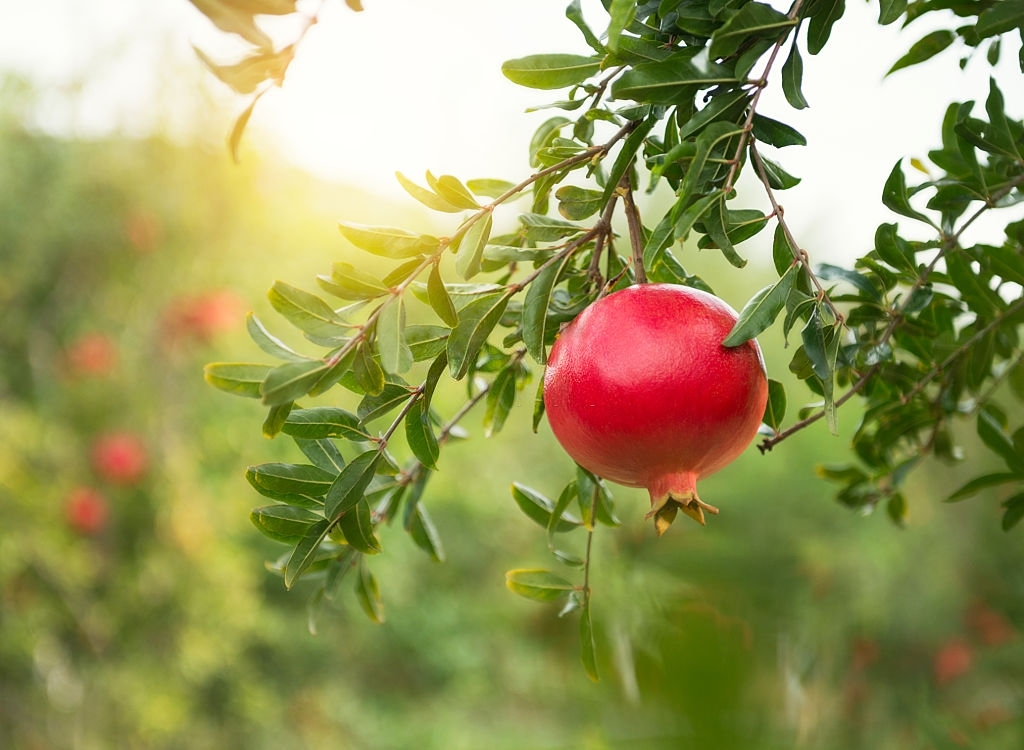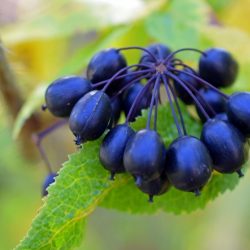A little history to start …
In prehistoric times, the pomegranate will have seeded all around the vast region bordering the Mediterranean Sea, and even beyond. About it, we find written traces in certain Sanskrit documents, through hieroglyphic inscriptions. That is to say its sphere of influence in time and space!
-
From a mythological point of view:
Certain Homeric passages describe it to us as the famous “bone of contention” of the Trojan War. While the pomegranate is found in many civilizations, it would seem that it had a major impact in ancient Greece in particular, as there are many deities for whom the pomegranate remains an attribute.
Due to its very many seeds, the roundness of its shape and the color of its pulp, it has been associated with Aphrodite. Embodying love and fertility, the pomegranate is said to have been planted by the hand of Aphrodite on the island of Cyprus.
The pomegranate is also found related to Hera and Dionysus, but it is in connection with Demeter‘s daughter, Persephone, that the pomegranate remains the best known. Persephone, seduced by Hades, who made her eat a grain of pomegranate (sometimes six, or a whole pomegranate), was therefore condemned to spend a third of the year in hell, the rest of the time with the Immortals. Here, the grain symbolizes the temptation which man must resist; do not give in to the insistence and therefore show strength.
However, thanks to its back and forth between the Underworld and the higher spheres, the myth of Persephone seems to mean much more than that, “since its rise to the surface of the earth means the warming and the greening of this one, the spring revival and, through this, fertility ”. Sad irony that the fate reserved for Persephone because the temptation will be worth to him to become sterile. She who was a “young girl” (Kore), therefore, could not become a “mother” (Demeter).
-
From a medicinal point of view:
More prosaic, Pliny the Elder, in his Natural History, will consider the pomegranate tree, in particular the flower buds of this small tree, as an ophthalmic remedy. Let’s listen to what he said about her: “If, after having untied all the ties of his belt and his shoe and even removed his ring, we pluck a button with two fingers of the left hand, the thumb and the fourth, if we make it pass in front of the eyes, touching them lightly and throw it into the mouth and swallow it without touching it with the teeth, we will experience all year round, they say, no weakness of the eyesight ”. The ties had to be untied, otherwise there would be no communication between the person picking the flower and the deity attributed to the plant.
The Hippocratics mentioned its use to treat wounds. As a pomegranate found in the tomb of a dignitary from the time of Ramses IV proves, the pomegranate, already known to the Egyptians, was a medical material. Indeed, they used the bark of pomegranate roots as an anthelmintic against tapeworms or tænia. In the 20th century, Dr. Jean Valnet still used it for identical reasons.
In 1500 BC. BC, Pharaoh Thoutmes introduced the pomegranate tree in Egypt, from the Near East. In the 1st century BC. AD, the Greek physician Dioscorides knew these virtues which were then forgotten for nearly 1800 years.
In what form to consume pomegranate?
We do not know all the forms in which we can find the pomegranate.
- Fresh:
The whole fruit should be squeezed, so as not to lose the tannins in the inner rind (the white filaments). Avoid the seeds, they are very bitter. Otherwise you can of course eat it as is!
- In juice:
Pomegranate juice is increasingly found in supermarkets. Avoid added sugars and preservatives.
Dry or not, it can be found in drugstores. Consult your pharmacist.
- In syrup or molasses (a little thicker than syrup):
In this form, pomegranate is often used in oriental dishes. It can be found in specialty stores.
- In fermented juice:
It is a kind of pomegranate wine, fermented pomegranate juice can be found on the internet (but be careful with the quality of the product) or in certain specialized stores.
The health benefits of pomegranate:
Pomegranate is one of the fruits with the most antioxidant properties (its effects are said to be greater than those of green tea). This is why its consumption makes it possible to decrease the level of cholesterol in the blood, atherosclerosis, arterial pressure and thus to prevent cardiovascular diseases. It would also reduce the onset and rate of development of prostate and breast, bladder, and even colon cancers. This effect is also explained by its anti-inflammatory and antiproliferation properties.
Also due to the presence of antioxidants, consuming pomegranate regularly could protect against neurological disorders associated with aging, including Alzheimer’s disease. Indeed, pomegranate is a protective agent against cell aging and dementia, chronic inflammation, as well as diabetes.
The pomegranate would also be useful in preventing the flu and fighting coughs due to the presence of vitamin B6 in large quantities – which strengthens the immune system -, the anti-inflammatory effects of antioxidants, as well as the antibacterial and antiviral actions of the tannins of which it is overflowing.On the other hand, many studies prove its benefit against the appearance and recurrence of urinary tract infections. And, in dialysis patients, the consumption of pomegranate juice would lead to a lower risk of infection and reduced inflammation.
Being rich in estradiol, its fruit is considered an aphrodisiac in women and used for erectile dysfunction in men.
We also like to use it in rheumatoid arthritis for its anti-inflammatory properties. The flowers, on the other hand, are used in traditional medicine as anti-diabetics because they reduce cardiac fibrosis.
Finally, in traditional Tibetan medicine as in Europe, its virtues on digestion are widely recognized.s.
Conclusion :
It is therefore recommended to eat it regularly during its season (from September to February in the Northern Hemisphere) and to drink a glass of pomegranate juice (no added sugar) daily the rest of the year.
The pomegranate also exists in the form of extract, dry or not, sold in drugstores. You can also find fermented juice, a kind of wine, in some specialty stores and on the Internet.
Be careful, pomegranate does not mix well with statins (drugs against cholesterol), anticonvulsants (carbamazepine, phenytoin), anti-inflammatory drugs (NSAIDs), antidepressants (IRS), analgesics (diclofenac), anti- hypertensive drugs (sartans), antiestrogens (tamoxifen) and blood thinners (warfarin). The best is to talk to your doctor.







